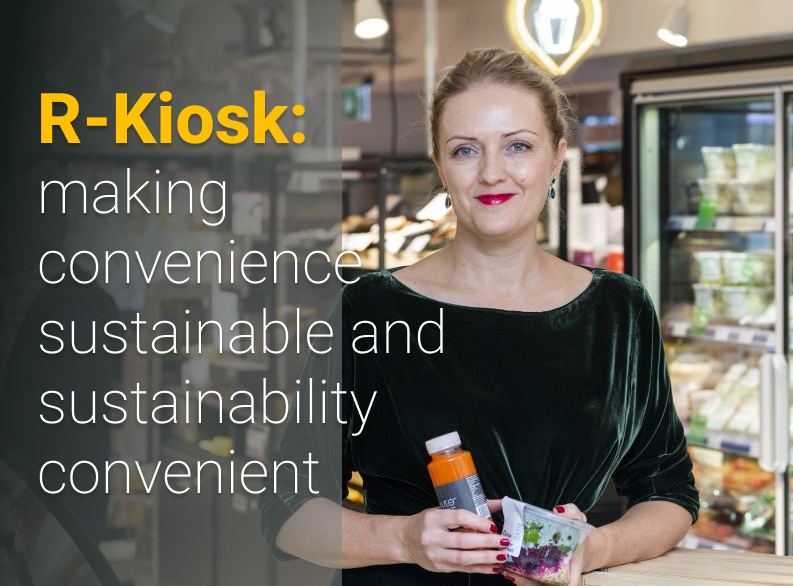R-Kiosk: making convenience sustainable and sustainability convenient
Source: Äri-IT Autumn 2022
Reitan Convenience Estonia, which belongs to the Norwegian family company Reitan, has introduced several technological innovations in the operations of its R-Kiosk and Caffeine brands, which have significantly changed our convenience commerce and cafe culture over the years.

The combination of Nordic experience, ideas and technology has made the large convenience kiosk chain R-Kiosk one of the innovation leaders in the Estonian retail market.
‘The business and management culture at Reitan is immediate and it has created a fertile ground for sharing experience and know-how,’ says Tiia Ilves, CEO of Reitan Convenience Estonia. The Nordic convenience concept introduced by R-Kiosk has become an organic part of Estonian commerce culture.
R-Kiosk is one of the largest retail chains in Estonia. Over the course of 20 years, ticket kiosks have grown into small, cosy shops located in places where people are constantly on the move. Most of the small shops of R-Kiosk operate in cities, but there are also more exciting locations, such as the ferries of Saaremaa and Hiiumaa, hospitals and military units. ‘Our task is to be close to people in their busy everyday life. Most of the time, the customer does not specifically come to our store, but comes in because they want to eat something, get a tasty snack or drink or something else they need, and then they run back to do their errands,’ claims Ilves.
She adds that convenience commerce has changed over the whole world, and the long period of the pandemic undoubtedly left its mark. The customer’s wishes are increasingly individual and time- and place-specific. ‘Our task is to notice and adapt to these changing needs, but above all to anticipate them,’ says Ilves.
FIRST R-KIOSK BASED ON ARTIFICIAL INTELLIGENCE IN ESTONIA
According to Ilves, the experience of the Nordic countries, which is somewhat ahead of the trends here, is a great support in anticipating the customer’s expectations. Many don’t know that R-Kiosk was the first to introduce self-service checkouts in Estonia. There are currently two such types of checkout: turnaround and standalone. The latter is the common solution today, where the customers scan their products themselves.
Only recently, R-Kiosk opened an unmanned store called R-Kiosk GO in the main building of TalTech, which is the first of its kind in Estonia.
Similar solutions are already familiar to Scandinavian customers. It is a small store where there are no customer service representatives or counters – the customer enters the store with a bank card or an app, chooses the products they like and leaves. R-Kiosk GO uses artificial intelligence, i.e. several sensors and cameras with extremely modern technology. Sensor technology perceives both the weight differences and movement of goods. All purchases are recorded in a virtual shopping cart using sensor technology, and payment is made automatically when the customer leaves the store. If the customer changes their mind while choosing products, they can put the item back on the shelf and it will be automatically removed from the virtual shopping cart.
‘The role of innovative ideas in convenience commerce affects retail businesses in every aspect – only a small part of how technology works together in the background is tangible to the customer,’ Ilves opens. According to her, technology and innovation are the support systems that help make the shopping journey as simple and convenient as possible for the customer. On the other hand, it creates the need to constantly keep both the client and your team up to date with innovations and to explain why or how one or another solution works, be it a new app or a store.
MAKING CONVENIENCE SUSTAINABLE AND SUSTAINABILITY CONVENIENT
‘We’re at a critical juncture – we can’t continue living as we have, using seemingly endless resources at the expense of future generations,’ notes the experienced CEO, who has worked in the convenience business for more than a decade. ‘The impact of our activities in the Nordic and Baltic countries is extremely versatile. We directly influence what people consume and how they consume it. This includes cooperation with manufacturers, and the selection of raw materials, energy use, handling of waste and use of packaging.’
Reitan has set an ambitious goal of being climate neutral in its operations by 2030. The focus is on the amount of carbon emissions, energy use and product selection based on planet-friendly principles. According to Ilves, in the future, people will not have to worry about their ecological footprint when buying from R-Kiosk. ‘The biggest challenges in our business are packaging and food waste, as well as food selection. Agriculture, including animal husbandry, produces greenhouse gases that warm the atmosphere. People’s eating habits do not change overnight, but we have to find a balance between our desires and what is sustainable for the environment in the long term.’
At the beginning of 2020, coffee cups were replaced with completely plant-based cups. Also, R-Kiosk was among the first in Europe to introduce completely plastic-free and compostable cup lids. In addition, you can get a discount on a hot drink if you buy it with your own thermos or other reusable cup.
The company is fully open to forms of cooperation that help reduce the waste of disposable packaging. A good example is the Estonian company Ringo, with which R-Kiosk has started to work. Important topics also include garbage sorting and food waste. To reduce food waste, cooperation with Food Bank and food cabinets is being expanded and cooperation with a company called ResQ Club has been started.
Ilves stresses that the convenience business can only be transformed through cooperation: ‘Changes are made by people – strategies and plans alone are not enough!’ Reitan’s team is close-knit both across the group and in Estonia – experiences and lessons are shared and points of contact are found outside of work as well. Many people have been with the company for a very long time and know the business and each other very well. ‘Such an immediate business culture is also fertile ground for the sustainability journey. It is very important that our own people understand why and what we do and what is their role in this,’ Ilves explains.
NEW TASKS OF ENTERPRISE RESOURCE PLANNING SOFTWARE
Priit Hansen, CFO of Reitan’s Estonian business, believes that in order to remain competitive, one must be in constant conscious movement. All business decisions are based on timely and relevant data and analysis. Equally important is the presentation and interpretation of data. Reitan Convenience Estonia is currently working on two major topics: process automation and the development of data analysis tools.
The Dynamics NAV enterprise resource planning (ERP) software program, which they have used since 2013, will be replaced by the latest version, Business Central, which is planned to be introduced this October. ‘We used NAV 2013 for a relatively long time, which outlived its time both morally and technically. Business is developing, needs are changing faster and faster, and to overcome even technical obstacles, it was only right to start implementing a modern version. In the big picture, the goal was to automate activities that can be done by software. This is necessary so that our people in shops and cafes can spend more time helping customers,’ says Hansen.
The most business-critical role of NAV is optimal inventory planning. Since R-Kiosk stores are often located in places where there is no large storage area, the movement of goods must be planned very precisely so that there is no shortage or too much left over.
According to Hansen, it is important that decisions are location-specific and made as locally as possible. He also points out the most important expectation of Reitan’s Estonian businesses for the new software: ‘Software data has been around for at least twenty years – it is nothing new. The role of the new software is to shape huge amounts of data into a form that is understandable and clear to people. In our shops and cafes, the most important mission of the host and barista is to provide the customer with an excellent experience. This experience is shaped by several activities – the main expectation for employees is certainly not the ability to read Excel spreadsheets. At the same time, for example, both chefs and category managers in the purchasing department must receive the data necessary to do their job. The software must be able to present information in various ways according to needs. In our case, one way for the service staff, another way for the purchasing department, and for others in the ways they need.’
There is a lot of versatility in the businesses of Reitan Convenience Estonia, and a seemingly simple shopping journey actually hides a whole world of systems that must fit together very precisely. According to Tiia Ilves and Priit Hansen, new expectations for convenience commerce as a whole, environmentally conscious business activities and people’s needs and expectations also place completely new demands on technology and systems, which are in turn constantly changing.
___________________
The Reitan’s convenience commerce business line – Reitan Convenience – is one of Europe’s largest retail organisations, operating in seven Nordic and Baltic countries.
In addition to R-Kiosk and Caffeine, the parent company includes several well-known brands such as 7-Eleven, Pressbyrån, Narvesen, R-kioski (Finland) and Lietuvos Spauda. Caffeine is the largest coffee shop chain in the Baltics, with almost 100 coffee shops in Estonia, Latvia and Lithuania.
___________________
BCS Itera has implemented an international retail software solution, LS Retail, in R-Kiosk and interfaced it with several supporting solutions. The basis of the solution is Microsoft’s ERP software system Dynamics 365 Business Central (previously named NAV).
The company uses the solution in finance, purchasing and in its planning, managing personnel and salary processes. The solution is integrated with a special solution for stock and POS systems and with business analysis. In 2022, they will switch over to the latest version – LS Central.
